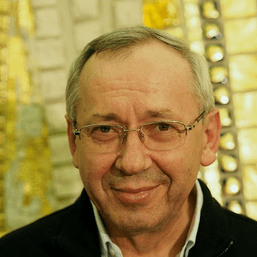SUMMARY
This is AI generated summarization, which may have errors. For context, always refer to the full article.

MANILA, Philippines – The Vatican’s top diplomat, in a historic trip to Manila, called on parties in the West Philippine Sea dispute to abide by international law, even as the Catholic Church is walking its own China tightrope.
Archbishop Paul Gallagher, secretary for relations with states of the Holy See, discussed the West Philippine Sea and a range of issues with his Filipino counterpart, Foreign Secretary Enrique Manalo, at a five-star hotel overlooking Manila Bay on Tuesday, July 2.
For more than an hour, Manalo and Gallagher held a working lunch with key officials from the Department of Foreign Affairs and the Apostolic Nunciature, after which they held a press conference at Diamond Hotel in Pasay City.
Manalo’s prepared statement to the media, and Gallagher’s response to a reporter’s question, referred to the sea row in generic diplomatic terms.
Gallagher and Manalo’s discussion on the West Philippine Sea was significant, however, because it was the first time the Vatican publicly addressed the Asian maritime dispute.
It was the first time, too, that a Vatican foreign minister was visiting Manila in the 73 years of diplomacy between the Holy See and the Philippines, Asia’s biggest Catholic-majority country.

In a press conference, Manalo said he and Gallagher “exchanged views on regional and international issues including developments in the West Philippine Sea, South China Sea, Ukraine, and Gaza.”
“We noted our shared perspective that amid the various international challenges and conflicts, the international community must be united in preserving a world where differences are resolved peacefully and on the basis of international law,” said Manalo, a 71-year-old career diplomat who helped engineer the Philippines’ foreign policy even at the time Manila sued Beijing in 2013.
‘Clear position’ of the Holy See
Gallagher, 70, himself an old hand in the Vatican diplomatic service, emphasized the Holy See’s consistent position on situations of conflict, as he addressed a journalist’s question about the Vatican’s stance on the West Philippine Sea.
The diplomatic service of the Vatican, which is a city-state aside from being the spiritual center of Catholics, is known for its nonpartisan voice that pushes for peace in the world’s danger zones. At the United Nations, the Holy See enjoys a “permanent observer” status “by its own choice,” so that it can “maintain absolute neutrality in specific political problems.”
Gallagher – who has served as the Vatican’s foreign minister for the past 10 years, and was assigned to the Philippines in the 1990s – said that “the position of the Holy See is quite clear.”
“In such circumstances, such situations of conflict whatever they are, first of all, every effort must be made that any differences and conflicts are resolved peacefully. We would encourage parties in conflict to abide by international law and to pursue ways of resolving difficulties and problems with the best interests of all involved,” he added.

In the context of the West Philippine Sea dispute, “international law” is an accepted reference to the 2016 arbitral tribunal victory of the Philippines against China over the West Philippine Sea. The Hague ruling rejects China’s claim over the West Philippine Sea and recognizes the Philippines’ exclusive rights over these waters.
China refuses to recognize the Hague ruling.
Vatican’s troubles with China
The Vatican itself is navigating a delicate relationship with China over the appointment of Catholic bishops in the communist country.
In the Catholic Church, only the Pope as successor of Saint Peter can appoint bishops anywhere in the world – but China, under the repressive Chinese Communist Party, refuses to recognize papal authority. This has forced many Chinese Catholics to attend underground churches instead of the ones sanctioned by the state.
The Vatican struck a controversial accord with China in 2018, and renewed it in 2020 and 2022, over the appointment of Catholic bishops. The complete details of the agreement “were never made public, but Francis has claimed he has final say in the bishop appointment process,” wrote the National Catholic Reporter.
Conservative Catholics criticized the agreement as a sellout to China, but the Vatican defended it as an imperfect means to hold some form of dialogue with Chinese authorities for the good of all Chinese Catholics.
Critics have also noted how China fails to honor commitments – likewise a chief complaint by Filipinos engaged in negotiations with China.
In March 2023, Gallagher told EWTN that the 2018 agreement was “not the best deal possible” and that Vatican diplomats have been “negotiating improvements.”

“Obviously, the objective is to get the best deal possible, which certainly this agreement is not the best deal possible because of the other party: They were only prepared to go so far and to agree to certain things. But that was what was possible at the time,” Gallagher said in his EWTN interview.
In April 2023, however, China broke the deal by installing Shanghai Bishop Joseph Shen Bin without the Vatican’s knowledge and consent. Three months later, in July 2023, Pope Francis formally recognized the Chinese bishop’s installation for the “greater good” of Catholics in Shanghai. – with reports from Reuters/Rappler.com
Add a comment
How does this make you feel?




There are no comments yet. Add your comment to start the conversation.